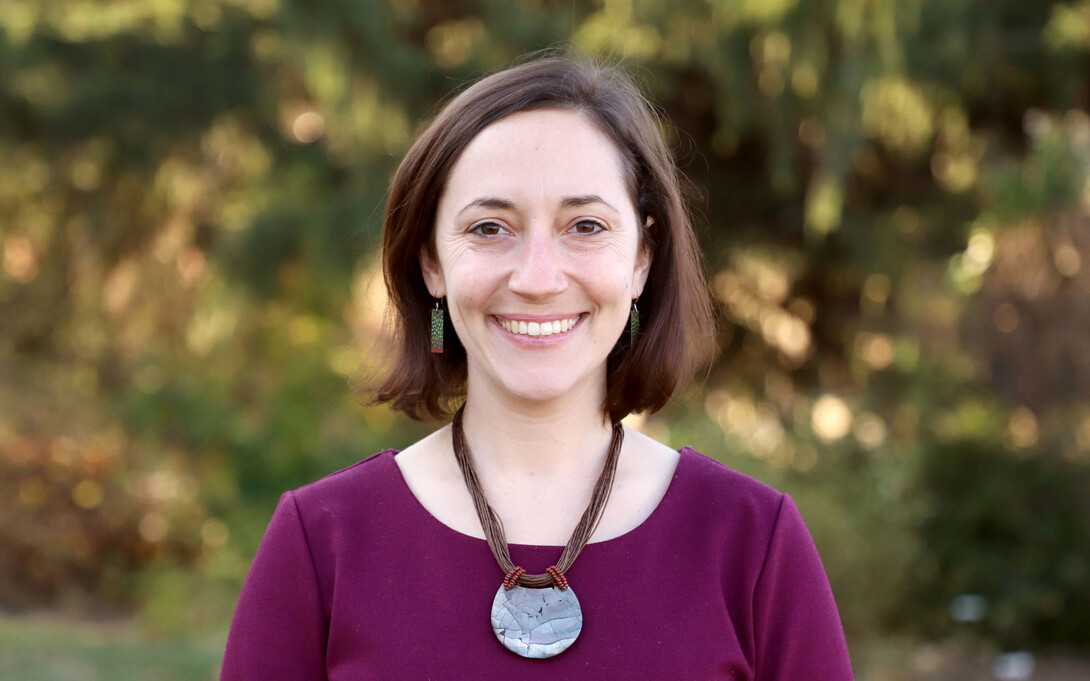
Andrea Basche, assistant professor of agronomy and horticulture, recently appeared on the National Public Radio podcast Science Friday to discuss how climate change is impacting soil.
“Soil is the underdog of natural resources,” Basche said. “I feel we give a lot of attention to water pollution and air quality but infrequently do you hear about the imperative of soil.”
Soil is a matrix of particles that include non-living parts and living organisms such as fungi and bacteria. Healthy soil should include adequate empty space for roots to grow and water to infiltrate. The force of rain hitting the soil destroys the healthy “aggregates,” or particles in the soil that ensure proper soil structure for plant roots. Heavy rain events can also degrade the soil by causing erosion of the rich top soil, which can decrease crop productivity and increase water pollution.
Scientists are studying how increasing temperatures and heavier rainfalls across the country will affect different natural resources, including soil ecosystems. According to the 2011 Wisconsin Initiative on Climate Change Impacts report, soil erosion in Wisconsin is predicted to double by 2050. And the University of Washington’s David Montgomery has estimated that soils forms at a rate of less than one-half ton of soil per area per year.
“If formation rates are (that low), we are losing soil in one year that is going to take decades to replace,” Basche said.
Raising awareness of soil as a limiting natural resource requires conservation practices that nourish, protect and build up resilience in soil against floods and droughts, she said.







